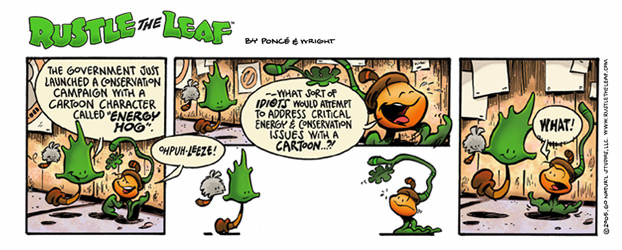 A lot of people are scared of composting. They think it's complicated, hard and smelly. In fact it's none of those things. At its simplest, you just pile up organic matter somewhere and leave it alone. That works. I swear. That's all you have to do to get compost. Of course you can make it more complicated than that if you want to. You can get very scientific about the proportions of "brown" and "green" materials, about the difference between "hot" and "cold" composting, "aerobic" and "anaerobic decomposition". You can buy a compost bin or a tumbler or a wormery if you want. Or you can forget all that stuff for now and keep it simple.
A lot of people are scared of composting. They think it's complicated, hard and smelly. In fact it's none of those things. At its simplest, you just pile up organic matter somewhere and leave it alone. That works. I swear. That's all you have to do to get compost. Of course you can make it more complicated than that if you want to. You can get very scientific about the proportions of "brown" and "green" materials, about the difference between "hot" and "cold" composting, "aerobic" and "anaerobic decomposition". You can buy a compost bin or a tumbler or a wormery if you want. Or you can forget all that stuff for now and keep it simple.But whatever you do, I promise you will find it satisfying. It's a magical process whereby a heap of grass clippings, raked leaves, vegetable peelings and teabags turns into that stuff you pay £5 a bag for at the garden centre. In fact, the stuff at the garden centre is quite likely to contain peat, a precious and non-renewable resource. Even if not, it will have been driven around the country on a petrol-guzzling lorry. You've heard of food miles. Consider your compost miles as well. Home produced compost is splendid stuff for all these reasons.
But why would you want to? What are you going to use your compost for when you've made it? Well you can dig it into your garden soil to improve its quality. If your soil is either clayey or sandy compost will improve its texture making the clay soil less heavy and the sandy soil less light. Compost also adds precious nutrients to your soil which will make make your plants healthier without needing artificial fertiliser.
Compost also makes a good mulch. Just spread it about on top of the soil and it will prevent water from evaporating too quickly and it is said deter some pests, although that doesn't tally with my experience. In time the worms will take the compost down into the soil so you get the same benefits as digging it in without the hard work.
You can also use it to make your own potting compost, by mixing equal parts of sharp sand, garden soil and compost.

4 comments:
As a fellow blogger spreading the word about compost I appreciate great posts like this one.
I don't know if you're aware of it but we were both linked to from TIMESONLINE
I'm from New Jersey so I don't know if that's a popular site or not but it seems to be sending me some traffic. Just thought you'd like to know.
Hi anthony, TimesOnline is part of The Times newspaper, one of the most respected newspapers in the UK, so I expect we will both see some traffic from there. The Eco Worrier column is worth bookmarking as it often has interesting articles and links. But here's a tip - she often seems to pick up on articles which have been featured in hugg.com, so you can pip her to the post by reading that regularly.
Hey there! I compost too. Caught your article via Hugg and am simpatico. I have a composter on my roof deck and its great. It cuts down on our garbage. Being on the fourth floor w/ no elevator, trips to the dumpster saved are good. Also, composting cuts down on the smell factor of our bin.
One really simple step that helps with the breakdown process is to freeze your scraps beforehand. That is, if you have room in your freezer. I think it cuts the decomposition time in half.
It goes without saying that the garden perks are terrific. Glad to know you are here!
-Bourgeois Deviant
http://bourgeoisdev.blogspot.com/
Hi BD, that's an interesting tip about freezing scraps. I can believe it would work, freezing certainly breaks down the cell structure of things you freeze. Congratulations on your new baby, by the way.
Post a Comment